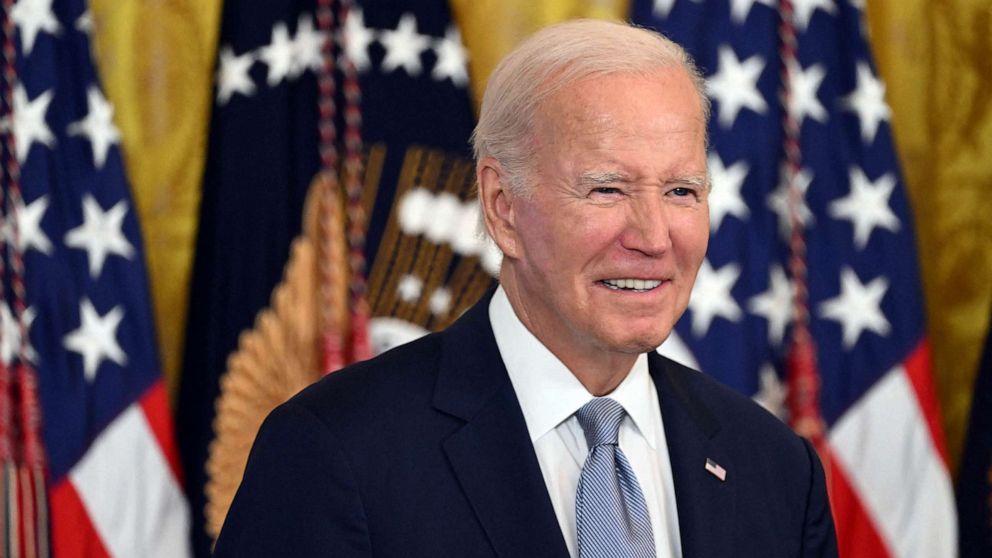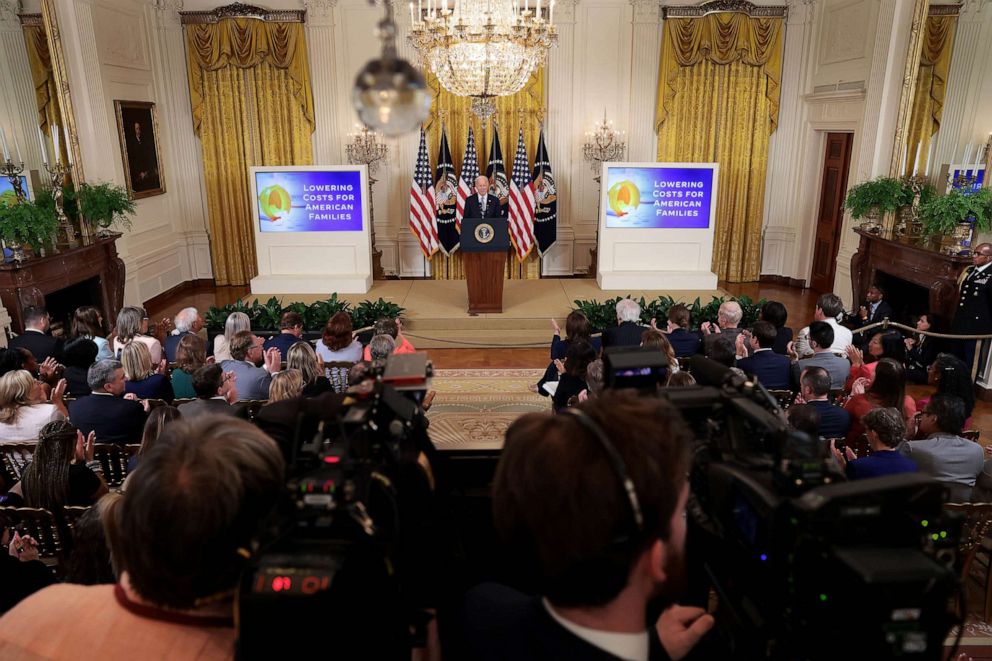Biden administration names 10 prescription drugs for first-ever Medicare price negotiations

The Biden administration on Tuesday unveiled the first 10 prescription drugs that will be subject to price negotiations with Medicare, marking a milestone for Democrats in their yearslong push to lower rising health care costs.
The list includes Eliquis, Jardiance, Xarelto, Januvia, Farxiga, Entresto, Enbrel, Imbruvica, Stelara and Fiasp/NovoLog insulin products.
President Joe Biden, in remarks at the White House, said the medications are “drugs to treat everything from heart failure, blood clots, diabetes, kidney disease, arthritis, blood cancers, Crohn’s disease and so much more.”
“Today is the start of a new deal for patients where Big Pharma doesn’t just get a blank check at your expense and the expense of the American people,” he said. “On my watch, health care should be a right not a privilege in this country.”
The impact won’t be immediately felt, however, as the negotiations will occur this year and next, with the new prices becoming effective in 2026.
President Joe Biden listens to Vice President Kamala Harris before speaking about lowering healthcare costs, in the East Room of the White House in Washington, DC, Aug. 29, 2023.
Saul Loeb/AFP via Getty Images
The Medicare Drug Price Negotiation Program is a result of the Inflation Reduction Act, one of Biden’s key legislative victories. It allows the government to directly broker with drug manufacturers for the first time in the history of the program, which provides health insurance coverage to 65 million people, including 57 million seniors.
Biden marked the occasion with an event in the East Room, where he and Vice President Kamala Harris were joined by Steven Hadfield, a Medicare beneficiary who recounted his experience working multiple jobs to afford medications for his chronic conditions.
“You’ve been through one hell of an ordeal,” Biden told Hadfield. “Your story is a familiar one to too many Americans. Instead of using all your energy to fight disease, you’re fighting insurance or drug companies for medicines that literally keep you alive.”
Medicare enrollees taking the 10 drugs selected for negotiation paid a total of $3.4 billion in out-of-pocket costs for the medications in 2022, according to the Department of Health and Human Services.
Biden said the negotiations will help lower costs for 9 million Americans. By September 2024, he said, HHS will publish the negotiated prices that will go into effect by January 2026.
Under the Inflation Reduction Act, the federal government can select up to 15 more drugs for negotiation in 2027, another 15 drugs for 2028 and up to 20 more drugs each year after.

President Joe Biden speaks during an event promoting lower healthcare costs in the East Room of the White House, Aug. 29, 2023 in Washington, DC.
Win Mcnamee/Getty Images
President Biden, in a nod to his 2024 reelection message, said taking on Big Pharma is part of his “Bidenomics” vision of building the economy from the middle out and bottom up.
“We’re going to see this through,” he said. “We’re going to keep standing up to Big Pharma and we’re not going to back down.”
Biden’s campaign also took a victory lap, stating several presidents have tried to take on the industry but “President Biden finally got it done.”
“Elections have consequences,” campaign manager Julie Chavez Rodriguez said in a statement, in which she also hit Republicans for opposing the Inflation Reduction Act. Biden, too, criticized “MAGA Republicans” who opposed the Inflation Reduction Act and some now trying to repeal it.
The drug industry, in response to the announcement, hit back on the program. Several pharmaceutical companies have sued the administration in an attempt to derail the price negotiations.
“Giving a single government agency the power to arbitrarily set the price of medicines with little accountability, oversight or input from patients and their doctors will have significant negative consequences long after this administration is gone,” Pharmaceutical Research and Manufacturers of America (PhRMA) President Stephen J. Ubl said in a statement.
-ABC’s Justin Gomez, Anne Flaherty, Karen Travers and Fritz Farrow contributed to this report.
Source: abc news















